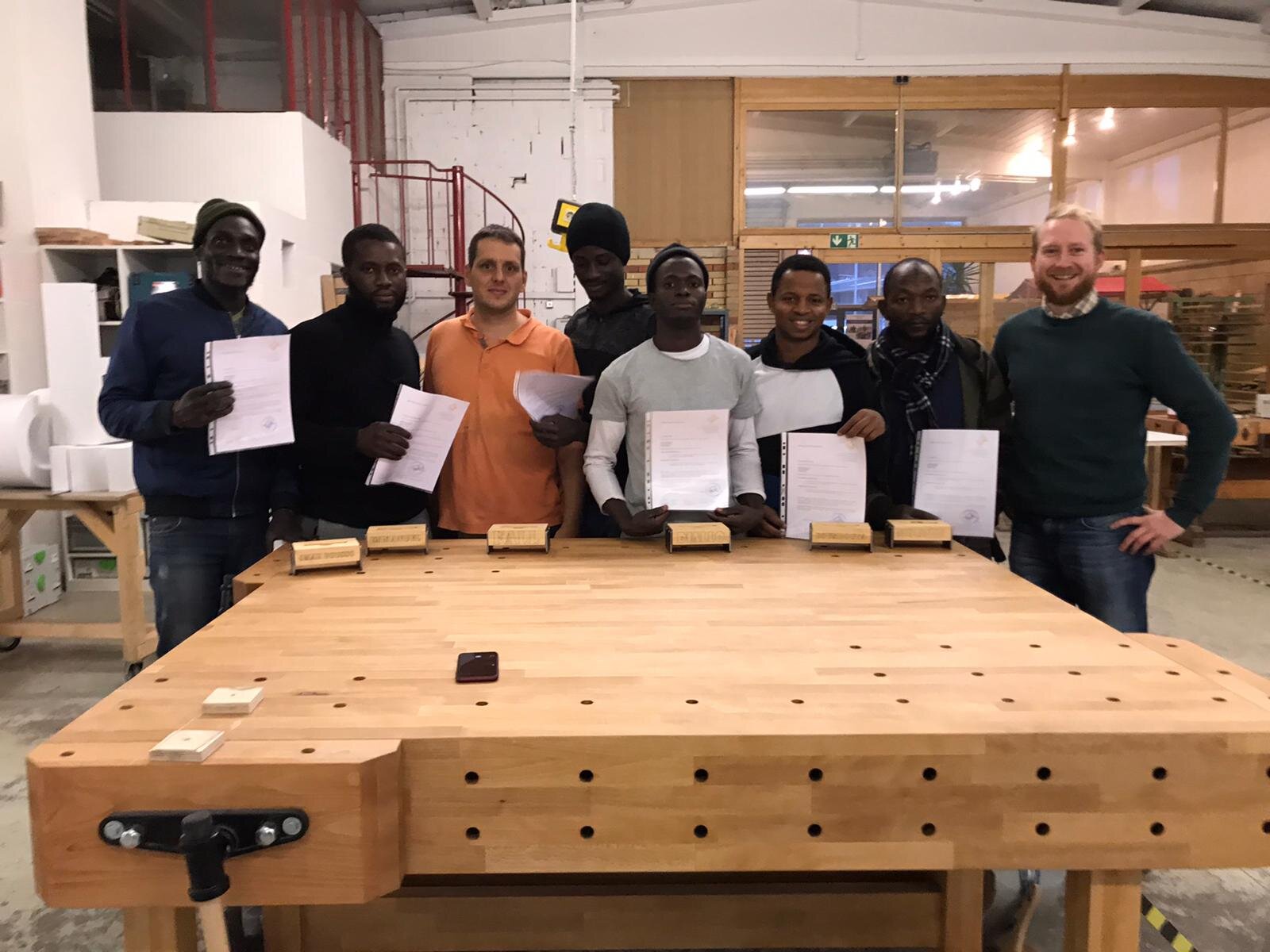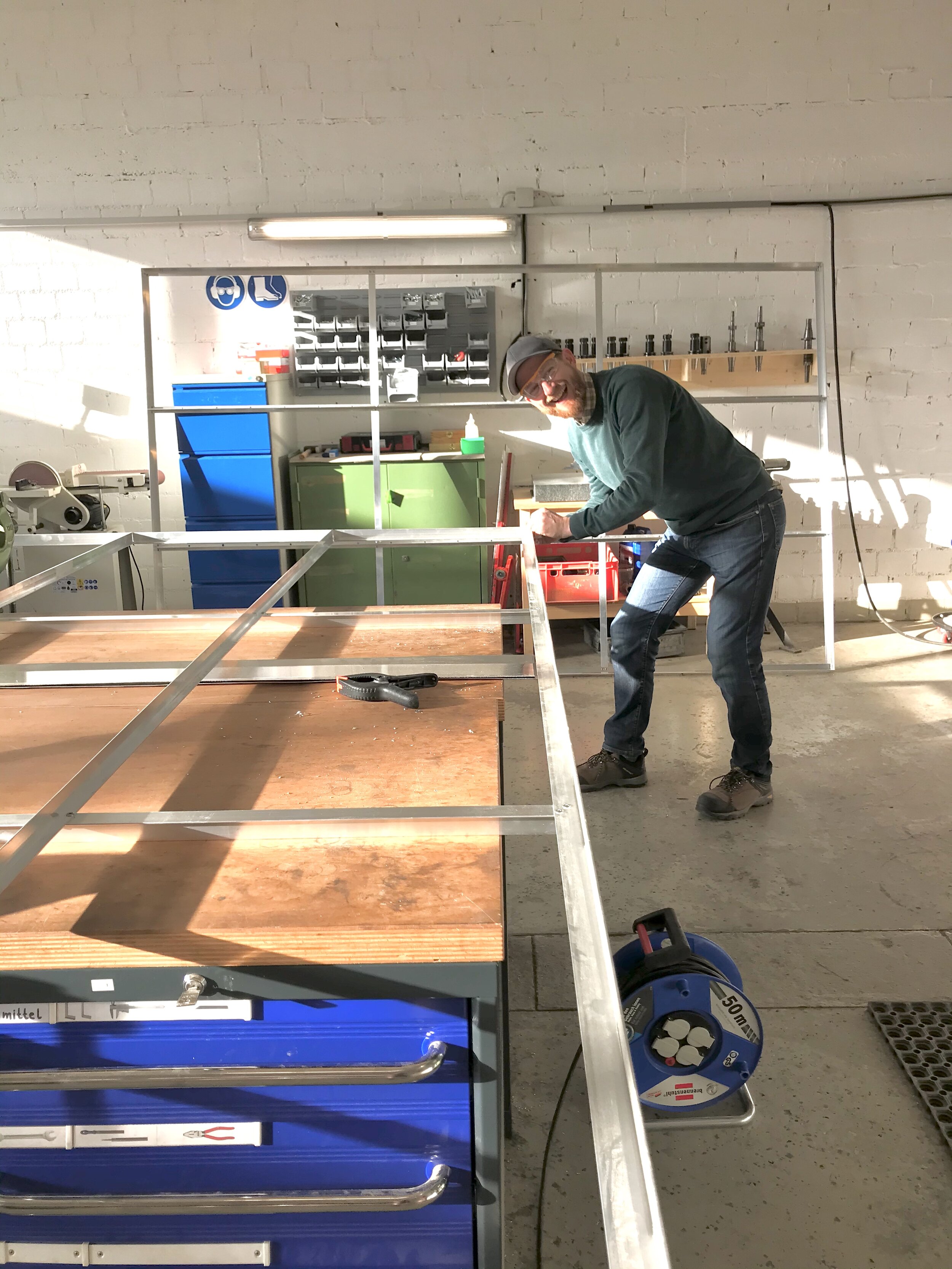Interview with Hannes - Metall Workshop at [p3]
This week I want to introduce you guys to Hannes!
Similar to Bert, he is just with us for a short time- a few months. Hannes, with a strong background in the area of Metall as a Mechanical Engineer and interest to develop his pedagogic skills, has taught Metall Basics to two teams of men a total of two weeks here at [p3]— and we are extremely thankful!
In the Interview, he shares with us his highlights, challenges and motivation behind his work.
Happy reading,
Cynthia
Cynthia: Hey Hannes, tell us a bit about you, what you are doing at [p3] and for how long now?
Hannes: Hi Cynthia! The last three years I have worked as a Mechanical Engineer, but I have always wanted to add a social aspect to my life. So I thought about different options of how i can fulfill this dream of mine. Finally I decided to quit my job and had a look on different social fields.
Since I first made an apprenticeship (Ausbildung) as an Industrial Mechanic (Industriemechaniker) and after that decided to study Mechanical Engineering (Maschinenbau) it was great when I found [p3]: it was a possibility to continue working with my technical background and to get in touch with a social and human part in work and life.
I am here since October and my task is to plan a special workshop for our area of metal (Metall). The Workshop is meant to be flexible depending on the knowledge of the participants and the duration of the internship (Praktikum) here at [p3], which can last between 1 day to two weeks.
In the first few days here at [p3] I just learned how everything works and is worked on. After developing the metal workshop in close cooperation with Tobias, I first led a group of six pupils finishing secondary school (Hauptschule) with migrant background. They did an internship with us for a week. The second group that I led through this metal workshop was also here one week. They were from the Erstaufnahmestelle (Refugees that just arrived in Germany or in Freiburg)
Cynthia: What has been a highlight from your work this far?
Hannes: The highlight was the first Workshop that took place after only four weeks of being here. I was pretty nervous. The idea was to build a cell phone stand, with legs of metal and a base of wood - so that the participant get basic skill in both, metal- and woodprocessing.
It was pretty cool to see how everything worked out well and to see the participants really happy and involved with the workshop. We had a great time together, it was challenging— but also a lot of fun for me. After a successful week, they had an actual product, which they had built themselves and were able to take home with them: a cellphone stand. It was good to see them enjoy what they learned here.
Cynthia: What were some of the challenges and what have you learned?
Hannes: The biggest challenge was to speak in french with the second group. Not just french, because it has been a few years since I have used it fluently, but also to use body expressions to explain everything haha!
The other challenge was not to know what level of knowledge in language and technical knowledge the participants had.
Cynthia: How can programs like this impact our city and ultimately our world?
Hannes: I think the main idea of [p3] itself is one answer. There are so many companies that urgently need people to work with them, to support their work. They have a challenge in finding new apprentices or employees. On the other hand, we have so many people with a lot of potential and willingness to learn. (And we can also learn so much from them as well!)
There is this gap in between, the gap that [p3] aims to fill! Of course, this is a challenge here in Freiburg, but this is also a global challenge. We have to build a bridge in between in order to close this gap.
Some of these participants dream of returning back home one day and this is a great possibility to empower them and to provide them with the skills and knowledge in these areas of metal & electricity. They learn how to work safely and that alone, it’s a great value that they can take back home with them— I think it will be a helpful experience and they might have learned here what they can use in the future.
Cynthia: Great, thank you Hannes for your time and for investing your time here at [p3]!
![[p3] Schreinerei, Ausbildungsvorbereitung & Mobile Küche](http://images.squarespace-cdn.com/content/v1/5b4da568f8370ac3a573a1c3/1615278839104-ZNAI0VTM808VCCJZ1RL1/P3_CLAIM_schwarz_logowebsite21_300.png)


